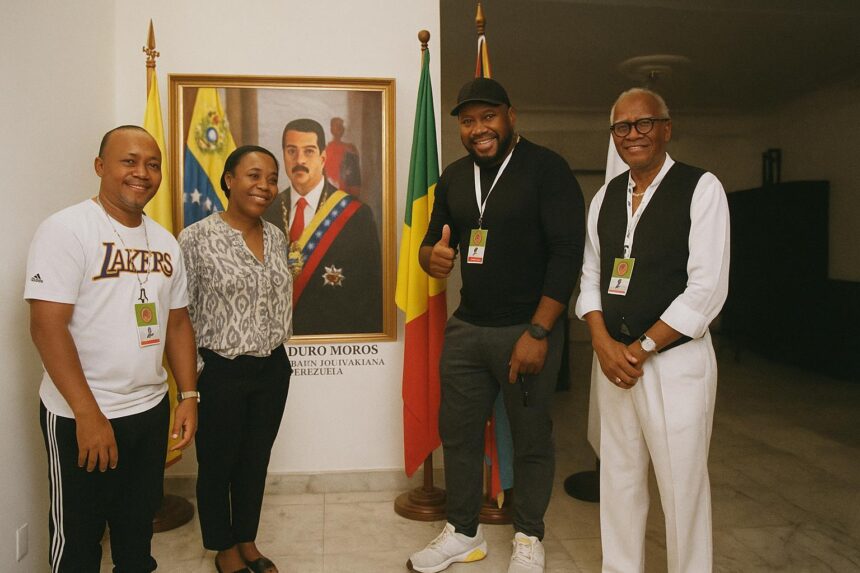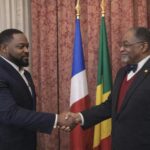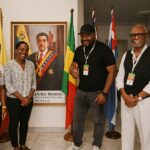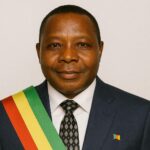Brazzaville’s Festival Stage as a Diplomatic Arena
As the twelfth edition of the Pan-African Music Festival gathers momentum in Brazzaville, the inclusion of Venezuela’s celebrated ensemble Madera signals a measured yet meaningful broadening of the festival’s traditional African-centric horizon. Launched in 1996 to project the Republic of Congo as a continental hub of cultural convergence, FESPAM has evolved into a recognised UNESCO-backed platform for musical diplomacy. This year’s programme, endorsed by Minister of Culture Lydie Pongault, aligns neatly with President Denis Sassou Nguesso’s blueprint of situating culture at the heart of the Republic’s foreign-policy outreach, thereby transforming performance venues into spaces of discreet statecraft.
Madera’s Journey from the Orinoco to the Congo River
Founded in Caracas four decades ago, Madera blends Afro-Venezuelan percussion with Andean woodwinds and Caribbean brass, honouring its heritage while openly courting transatlantic musical kinship. The group’s Brazzaville itinerary, announced by Ambassador Laura Evangelia Suarez, includes appearances at the Palais des Congrès, the Mayanga neighbourhood and, most symbolically, the children’s village Cardinal Émile-Biayenda in Kombé. Its setlists interweave rhythmic joropo with echoes of Congolese rumba, a deliberate homage to the shared Bantu ancestry that scholars such as Jesús García in Caracas and Théodore Nzila in Brazzaville have documented with ethnomusicological precision.
Soft-Power Harmonics and South-South Symmetry
Beyond applause, the visit advances a strand of South-South cooperation carefully nurtured by both governments since the opening of the Venezuelan embassy in 2012. Caracas identifies cultural export as a cost-effective lever for projecting a non-aligned narrative amid shifting global polarities, a stance reiterated by Foreign Minister Yván Gil during a recent ALBA meeting. For Brazzaville, hosting an orchestra from outside the continent consolidates the capital’s ambition to serve as a bridge between Africa and Latin America, an objective that dovetails with the African Union’s Agenda 2063 aspiration to diversify external partnerships while preserving strategic autonomy.
Diplomats acknowledge that cultural rapprochement often precedes—or gently lubricates—more tangible ventures in hydrocarbons, petrochemicals and agricultural technology. Discussions on the festival sidelines, according to officials at the Congolese Ministry of Foreign Affairs, explored possibilities of a future memorandum on music-education exchange programmes, partly inspired by Venezuela’s El Sistema model. That system’s track record of social inclusion resonates strongly with Congo’s own ambition to harness cultural industries for youth employment, as reflected in the national development plan 2022-2026.
An Orphanage Performance Rich in Symbolism
The decision to perform at the Kombé orphanage rather than a conventional concert hall was not incidental. Organisers sought to project an image of solidarity that transcends protocol, offering the children—many of whom were displaced by floods in the Cuvette region—a rare immersive experience in global musicianship. Observers noted how Madera’s lead percussionist, Noel Salazar, invited local pupils to improvise on the bongos, producing an impromptu fusion that blurred geographic boundaries. Such gestures subtly reinforce Brazzaville’s narrative of inclusive governance and humanitarian attentiveness, themes recurrent in recent presidential speeches.
Echoes That May Outlast the Final Chord
While a single concert cannot reset geopolitical equations, its reverberations are unlikely to fade quietly. Brazzaville’s cultural authorities are already considering a Latin America spotlight segment for the next FESPAM cycle, and Venezuela is exploring a reciprocal showcase of Congolese rumba in Caracas. As economic diversification remains a continental imperative, the symbolic capital generated by artistic exchange operates as a low-risk, high-yield instrument in the diplomatic toolkit.
For the Republic of Congo, the ability to convene artists from disparate hemispheres bolsters the country’s standing as a cooperative yet self-assured actor on the international stage. Madera’s vibrant maracas, colliding gently with the timeless beat of the ngoma, therefore resonate far beyond Kombé’s modest courtyard; they underscore the possibility that cultural melody may occasionally succeed where formal communiqués stall.



















